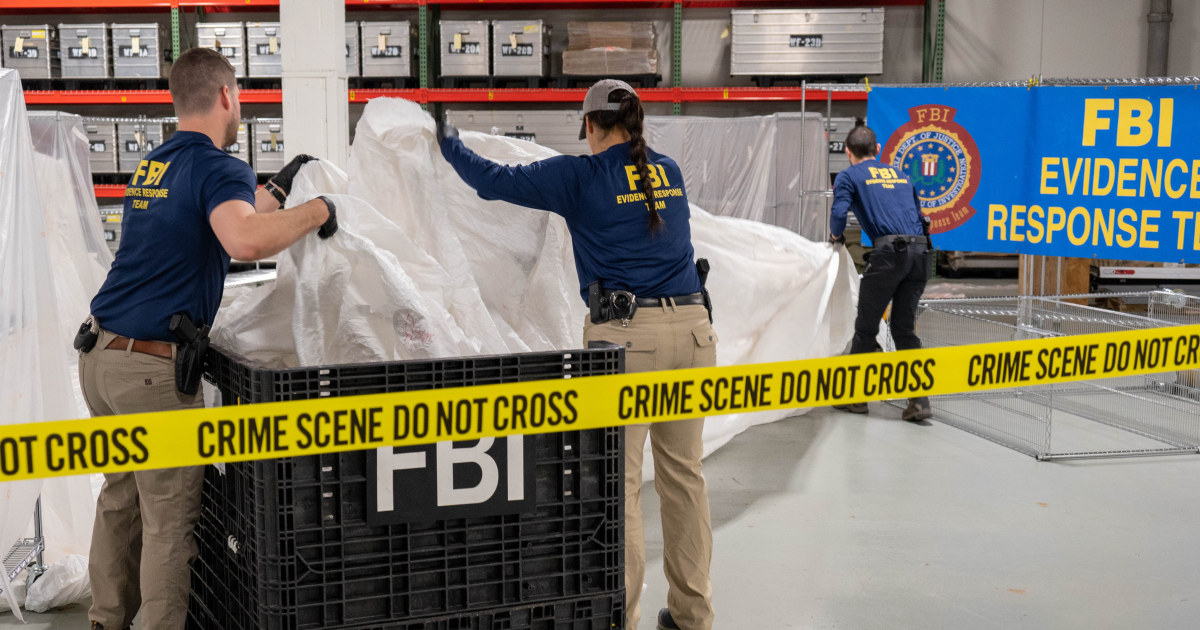
www.nbcnews.com
China says it rejected U.S. call over balloon because ‘atmosphere’ wasn’t right
The Chinese Defense Ministry said it declined a call from Defense Secretary Lloyd Austin over the surveillance balloon because the U.S. had not “created the proper atmosphere for dialogue.”
Science & Tech
HONG KONG — China on Friday accused U.S. lawmakers of “political manipulation and hype” over the downing of its suspected spy balloon, as Beijing said it declined a call from the U.S. over the saga because Washington had not “created the proper atmosphere for dialogue.”
The Chinese Foreign Ministry repeated Beijing’s insistence that the high-altitude balloon was a civilian airship, and criticized a unanimous resolution by House lawmakers on Thursday condemning China’s use of the balloon.
“The resolution by the U.S. Congress was purely political manipulation and hype,” spokesperson Mao Ning said at a regular briefing. “China is strongly dissatisfied with this and firmly opposes it.”
Mao’s comments came after a statement late Thursday from the Chinese Defense Ministry, which said the U.S. action against the balloon “seriously violates international practice and sets a bad precedent.”
“Given that this irresponsible and seriously wrong approach by the U.S. did not create a proper atmosphere for dialogue and exchanges between the two militaries,” spokesperson Tan Kefei said, “China did not accept the U.S. proposal for a phone call” on Saturday between Defense Secretary Lloyd Austin and his Chinese counterpart, Wei Fenghe.
Tan added that China “reserves the right to use necessary means to deal with similar situations.”
The Biden administration says China was using the 200-foot-tall balloon for surveillance, with a senior State Department official saying Thursday that it carried “multiple antennas” capable of collecting signals intelligence.
China maintains that the balloon had strayed off course as it was conducting meteorological research, and that the U.S. overreacted in shooting it down on Saturday off the coast of South Carolina.
The FBI said Thursday that much of the remnants of the balloon remained underwater and that analysis was still in its early stages. A senior U.S. official briefed on the matter said the total amount of equipment recovered from the ocean surface was about the size of a small car.
China had expressed “regret” last week when the balloon’s presence over the continental U.S. was made public, but its tone has sharpened as Secretary of State Antony Blinken canceled a planned trip to Beijing and U.S. officials warned of potential action against entities linked to the Chinese military.
Mao said Thursday that U.S. claims the balloon was being used for spying were part of its “information warfare” against China. She also said the U.S. endangers China’s national security and undermines regional peace and stability by sending warships and planes close to China for reconnaissance, and accused the U.S. of hypocrisy when it comes to spying.
“The United States is the world’s largest monitoring and reconnaissance country,” she said at a regular briefing. “It has been conducting intelligence activities around the world for a long time.”
White House officials have underlined the importance of maintaining communications with China, the world’s second-largest economy and one with which the U.S. did record trade in 2022.
President Joe Biden said Thursday he did not view the balloon as a major security breach, and that he did not regret waiting several days until it was over water to shoot it down.
“This thing was gigantic. What happened if it came down and hit a school in a rural area?” he said in an interview with Noticias Telemundo.
Speaking to the Senate Foreign Relations Committee on Thursday, Deputy Secretary of State Wendy Sherman said the balloon’s incursion into U.S. airspace illustrated that China had become “more aggressive abroad,” but that she hoped the two countries could continue working together on issues like counternarcotics, climate change and global health “even in this difficult time.”
























































